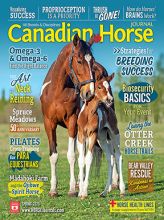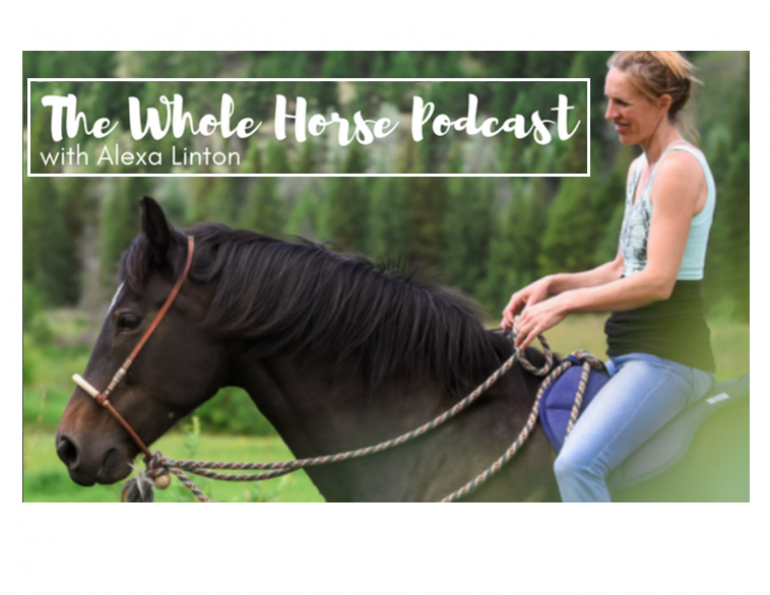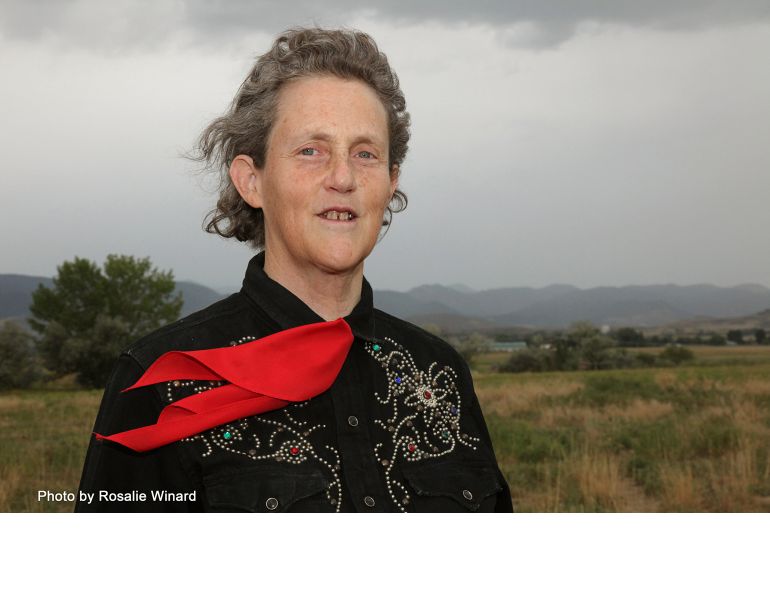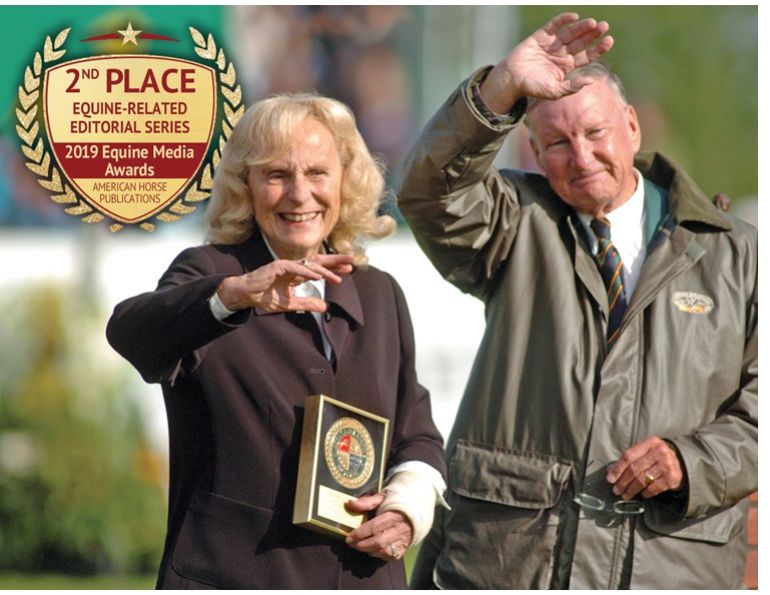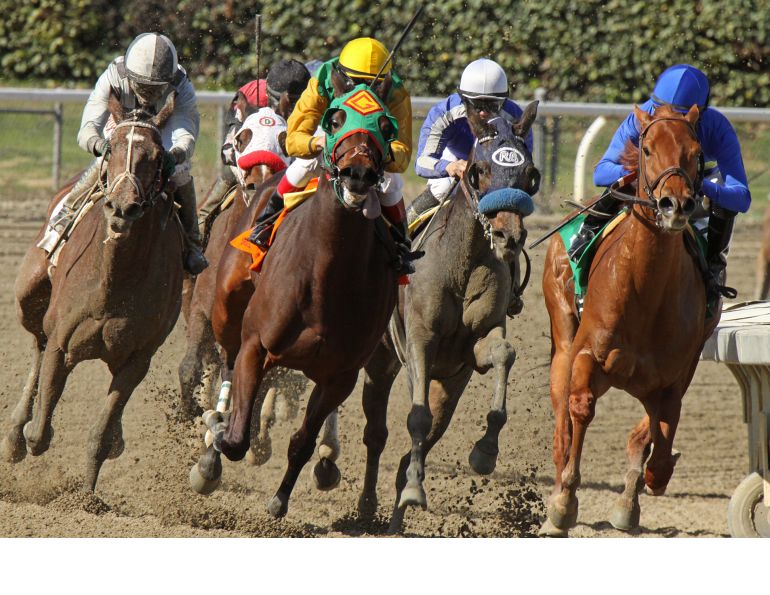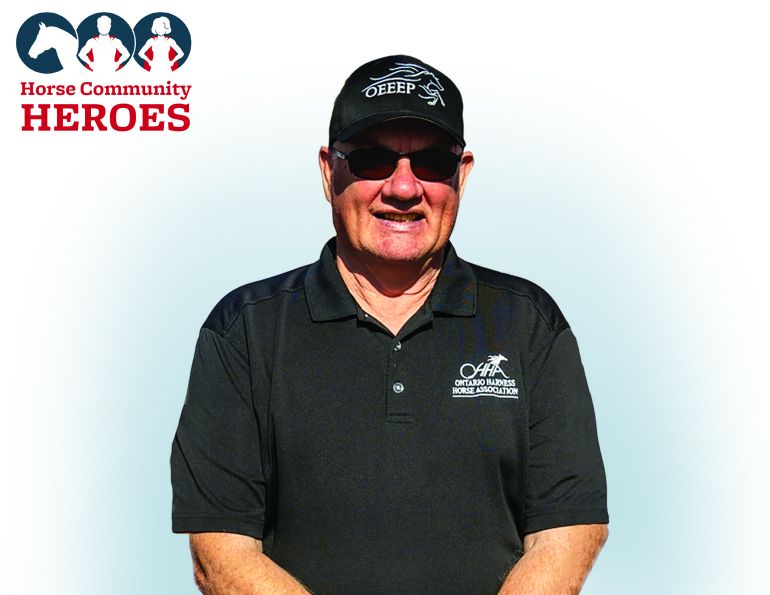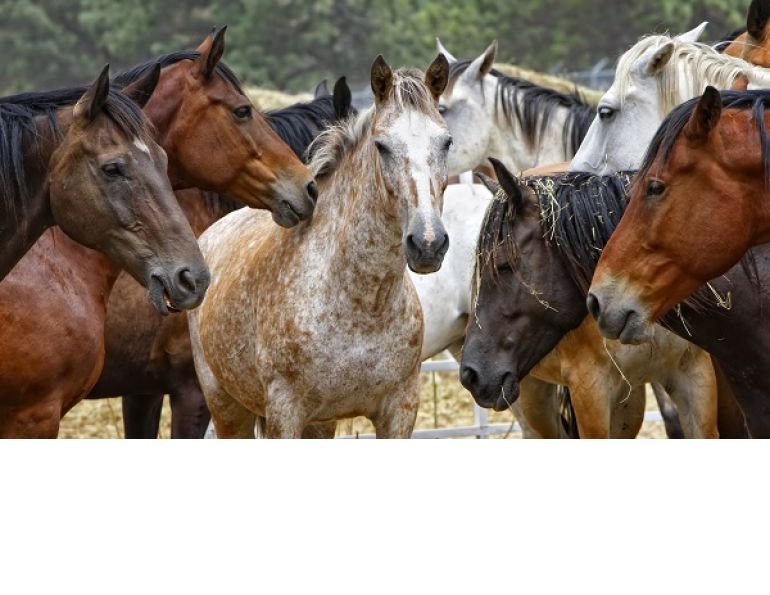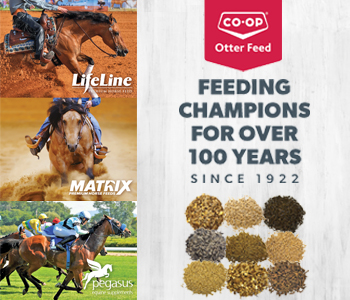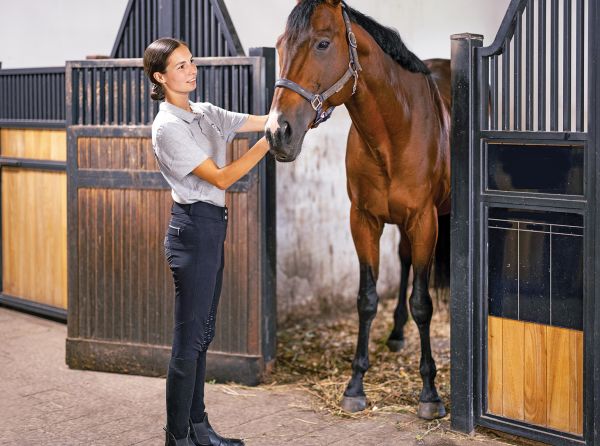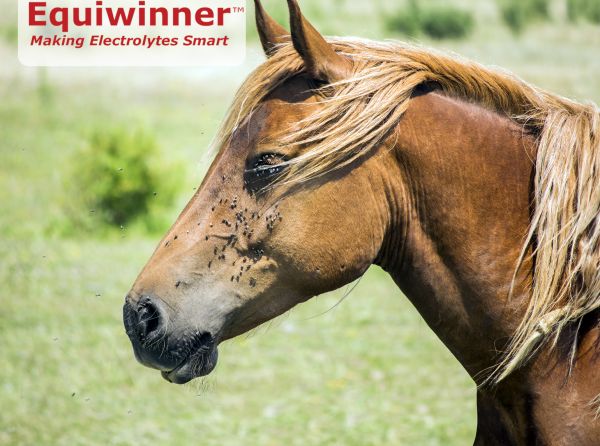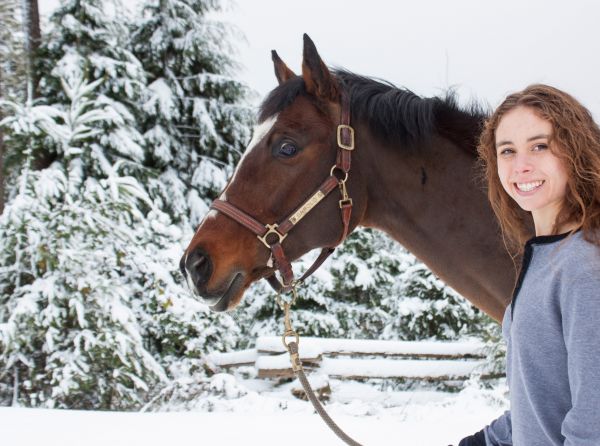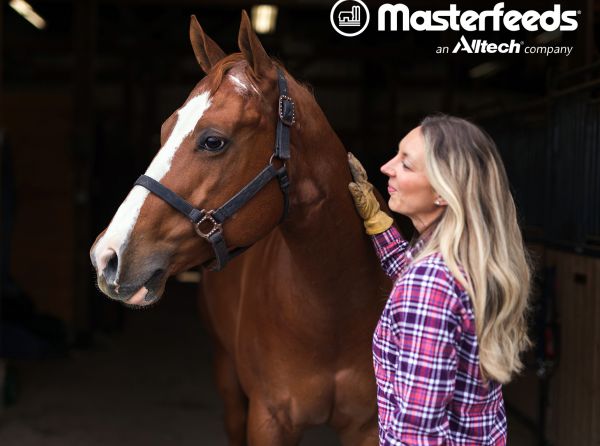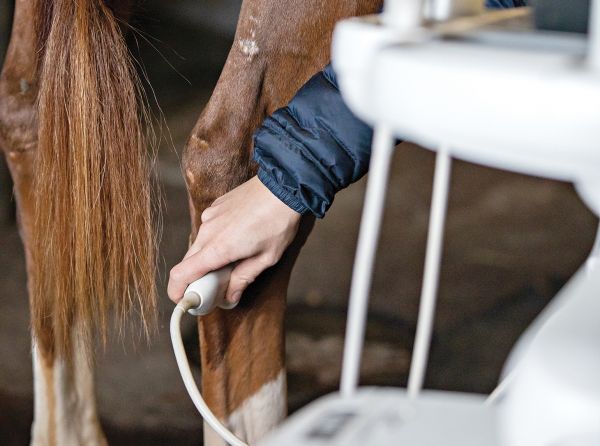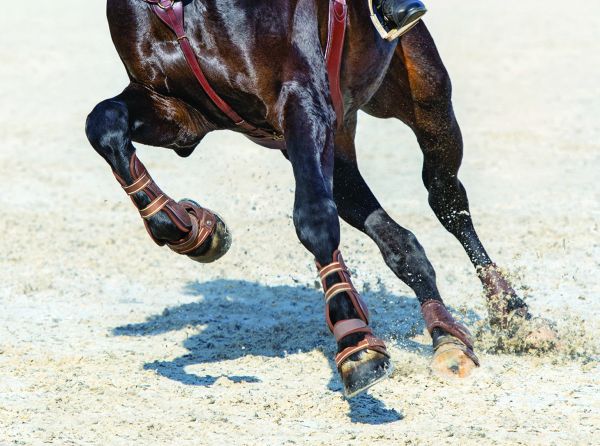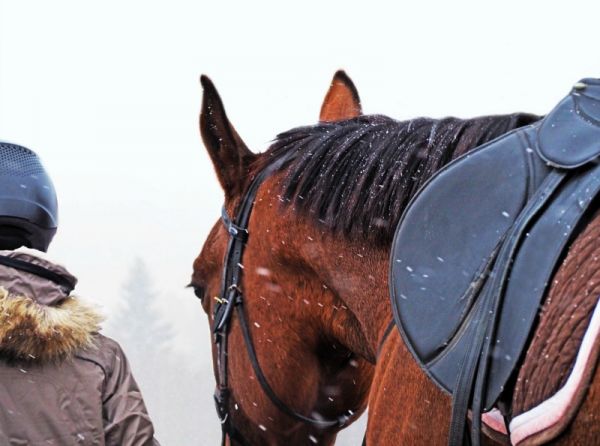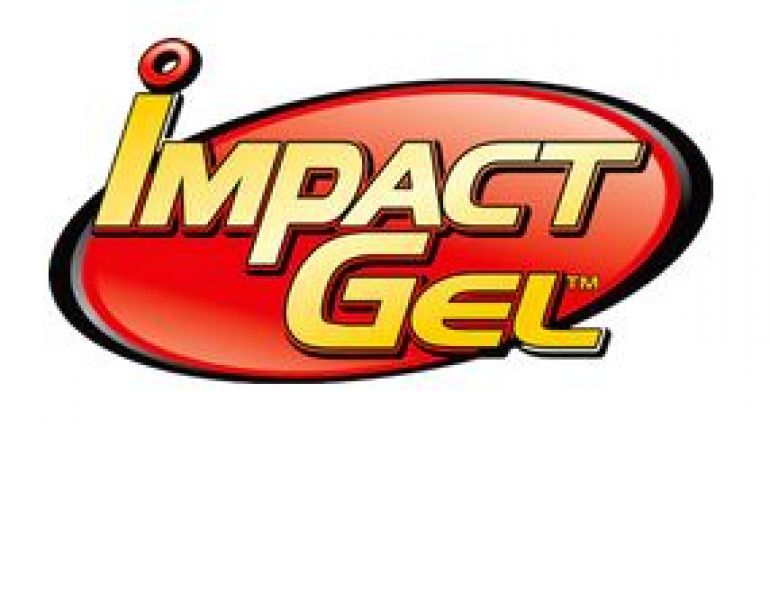A Veteran Looks At Life Through His Horse’s Ears
By Margaret Evans
“I joined the PPCLI cadet corps at the age of 12 and soon realized that a career in the army was what I wanted to do,” says McEachern. “At 17 I enlisted in the reserves and did my first tour overseas as a peacekeeper in Croatia (former republic of Yugoslavia) with 1st Battalion Princess Patricia’s Canadian Light Infantry. After the tour I transferred to the regular force with the same battalion I served with overseas. In 1995 I was sent to Central Africa with the Disaster Assistance Relief team as security for the medics, headquarters, etc. I also served in several natural disasters here in Canada, firefighting in BC, the 1997 Manitoba floods, and the 1998 Quebec ice storm. It was after Africa that I started experiencing nightmares, panic attacks/anxiety, and life at home started to unravel. I was diagnosed with post-traumatic stress disorder in 1998, and subsequently medically released in 2001 after 14 years of service.”

Sozo and McEachern coming in from the field to do some work. Photo courtesy of Christian McEachern
Growing up in Calgary, McEachern was into outdoor pursuits. But he hated anything to do with the cowboy/country life, and the military beckoned. After serving 14 years of duty, he attended Mount Royal University and took the Bachelor of Applied Ecotourism and Outdoor Leadership program. A career as an outdoor guide was logical given his years in mountain warfare and he was soon doing white water rafting, mountain biking, hiking, advanced wilderness and remote first aid, survival training and team building. Back then he would say horseback riders were lazy and taking the easy way up the mountain.
Enter Sozo, his off-the-track Thoroughbred who forced an attitude change. And it was prophetically appropriate that Sozo’s name in Greek means to save, to heal.
By another twist of fate, a friend’s family had a ranch near Taber. They needed some over-winter help with their cattle/lamb operations and, given his newfound abilities with horses, he was offered a job.
“How the hell did I end up being a cowboy?” he asked himself a hundred times as it dawned on him that he loved the work and the lifestyle. It was as much a shock to him as to his friends who wondered what happened to the old anti-cowboy Christian. But he had many things going for him. He loved the outdoors and he had learned to love horses.

McEachern always loved the outdoors, but when a twist of fate introduced him to horses he learned to love horses as well. He is now developing equine backcountry preparation courses and survival clinics for riders who yearn for a mountain ride but lack the skills and knowledge to do so. Photo courtesy of Christian McEachern
“My background in the army totally helped with my backcountry experience, but I’ve always been into the outdoors,” he says. “I say the biggest factor was working in the outdoor industry as a guide with civilian clients. It was here I noticed that while normal outdoor pursuits have many safety courses, how-to courses, and generally a good attitude to being prepared for backcountry travel, the same standards and availability of training are largely missing in the equine industry. A guide for river activities needs the provincial whitewater guide certification, advanced wilderness and remote first aid, swift water rescue level 1 and 2, and other advanced certifications as well as well-equipped first aid kits and rescue equipment. On the flip side, a horseback guide for a regular tourism operation doesn’t need any certification. In fact you would be lucky that your guide has any background first aid training or human/equine first aid on the trail with you. Essentially the horseback riding industry is years behind normal outdoor pursuits in safety and training. I gained a lot of equine experience in the backcountry just by getting out and doing it. Things like what to bring, wildlife encounters, difficult terrain, and training my horses for backcountry travel have only added to the wide range of experience I have in the outdoors.”

“Charme is a Bear Valley rescue Percheron/TB mare that was bought from a meat supplier,” says Christian McEachern. “I adopted her at five months old (she is eight this year) and trained her myself. While Sozo was my first horse, I spend by far the most time with Charme as she has turned out to be a great trail partner and a true gift.” Photo courtesy of Christian McEachern
McEachern certified as an Equine First Aid instructor with Equi-Health Canada/USA and has been teaching courses. His background really helps to give clients confidence in his backcountry preparation and survival and he has discovered a huge market of riders who want to get out of the arena for a mountain ride but lack the knowledge or skills to do so. Currently he is developing a daylong equine backcountry preparation course that should be ready to go within the next few months, as well as a two-day “survival with your horse” clinic that will be ready for spring 2016. He plans to teach route planning, communications, navigation, water crossings, working with your horse through difficult terrain and dealing with wildlife encounters. He is also certifying and contributing course teaching material in the advanced equine first aid course by Equi-Health Canada.

McEachern and Charme celebrating the Princess Patricia's Canadian Light Infantry’s 100th anniversary. Photo courtesy of Christian McEachern
“I’ve accomplished many great things in my life, but raising, training, and enjoying time with my horses has turned out to be one of the more rewarding lifestyle choices. Working with horses forces you to learn about yourself and how we are perceived by the outside world. You also have to be ‘in the now’ and leave all emotions at the gate so to speak, because horses reflect our emotions like a mirror. There is no place while working with horses to be thinking of anything else other than what you are doing. For a veteran or any person with a traumatic background that means no time to think about the past or future, only the now. For me, it serves as a respite from all the mental and physical issues I deal with on a daily basis. No matter how bad my night was, it’s easy to get the day started when I look out my window and see my horses in the field. The routine of care and training also gives me something constructive and positive to focus on. I’ve always tried my best at anything I set out to do, and that has transferred directly to my success with horses. I went from the anti-horse guy to caring, raising, training, hoof trimming, and medical care as I try to reach my goal of a well-rounded horseman. Sozo was my first horse, but that has led to five horses of various ages and abilities. I am grateful and thankful every day for my horses.”
Now, McEachern lives every day with mental and physical injuries but horses have been a huge help to him.
“I’m not sure where I would have ended up if I hadn't got into horses. They give me a positive outlet, constant feedback and learning, and a goal to work towards. I am a soldier and I miss it every day. While I have always enjoyed the outdoors and now being a horseman, it has become much more important that just recreation. It is now a vital tool for managing my mental health day to day and my favourite place to be by far is looking through my horse’s ears.”
Main Photo: Courtesy of Christian McEachern


